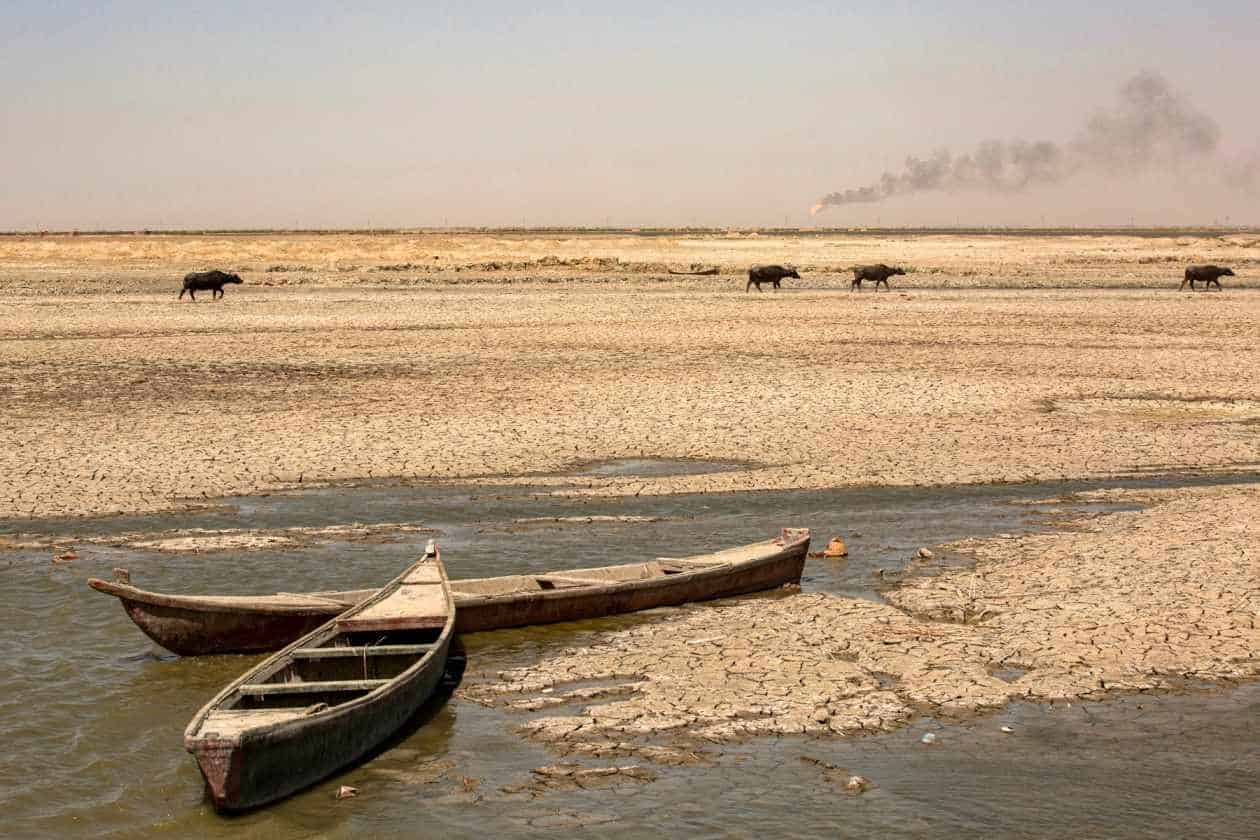BAGHDAD, IRAQ – In drought-hit Iraq, six out of 10 households have had their access to drinking water disrupted and a quarter of farmers have seen crop yields drastically fall this year, said a survey published Monday.
Iraq has been battered by three years of drought, low rainfall and reduced river flows and the United Nations has ranked it the fifth most vulnerable country to some key effects of climate change.
The Norwegian Refugee Council (NRC), an aid group active in the oil-rich but war-scarred country, surveyed 1,341 households in August in five provinces including Basra, Nineveh and Anbar.
“We are seeing the continued damage from Iraq’s climate and water crisis,” said James Munn, the NRC’s country director, in a statement released alongside the survey findings.
“People are witnessing their fertile land and crops vanish year after year.”
The NRC study found that “the crisis has had an immediate impact on access to drinking and irrigation water as well as on the production of crops,” causing 35 percent of households to reduce the amount of food they consume.
Sixty-one percent of households “stated that their access to drinking and domestic water had been disrupted in the last year”, the NRC said.
In the southern Basra province, where the Tigris and Euphrates rivers converge before emptying into the Gulf, some areas have no clean drinking water “due to decreased water levels and high salination”.
According to the survey, 25 percent of households that rely on agriculture “witnessed over 90 percent of wheat crop failure this season”.
“As a result of the impact of drought on crop production, one quarter of farming households stated that they did not make any profit from selling their wheat crop this year,” it added.
Apart from wheat, “42 percent of households surveyed stated that they have seen their production of barley, fruit and vegetables go down” this season.
The prolonged drought has displaced many Iraqis.
Tayseer, a 42-year-old farmer in the country’s north, told the NRC he may have to leave his land in Hawija due to income loss.
He used to make 10 million Iraqi dinars (about $6,850) each season, he said, but added that this year, “I may not even get 2 million”.








